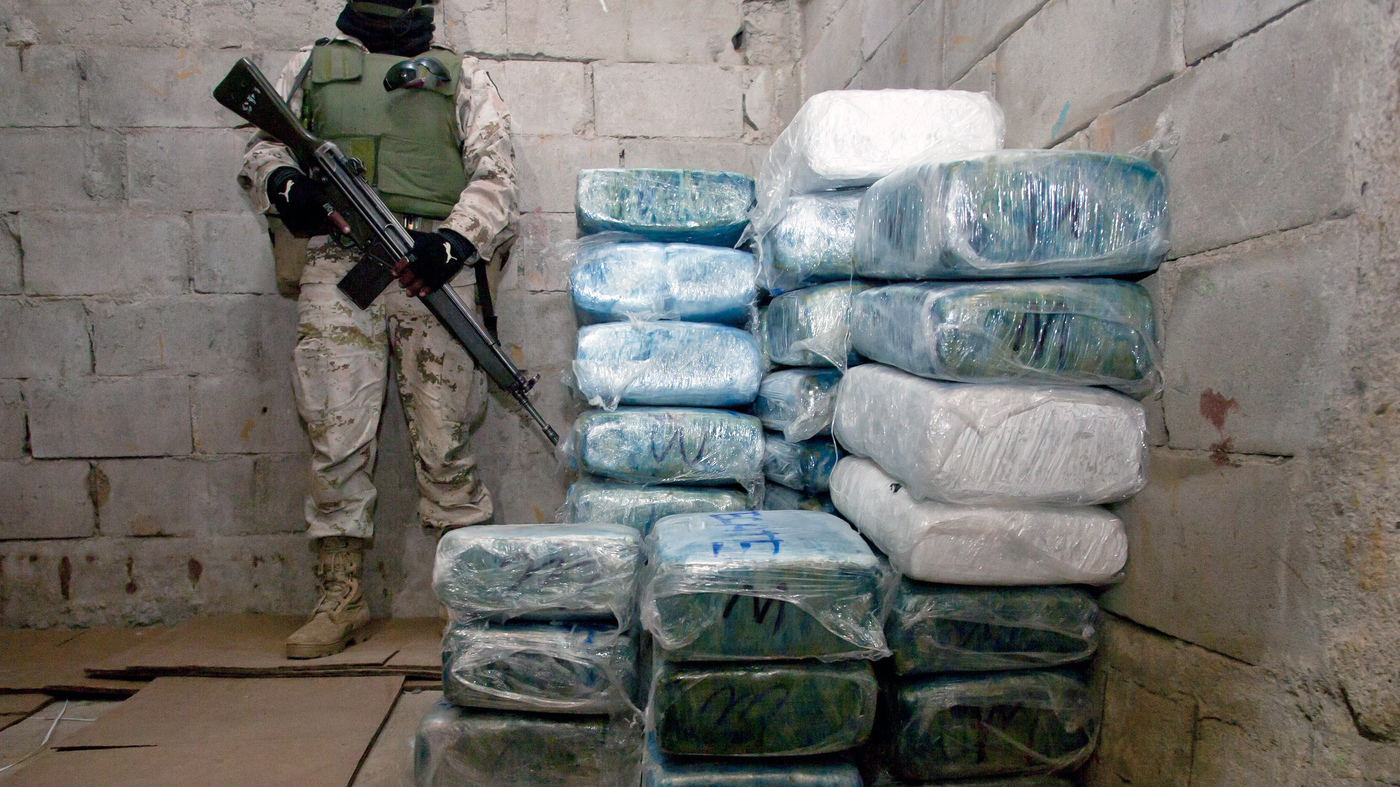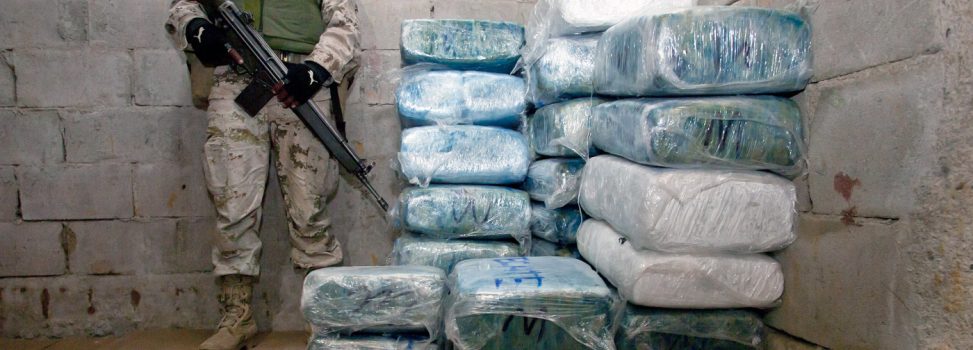Changing Dynamics of Mexican Cartel Activity and Violence
Drs. Marcus Boyd and Samuel Henkin
National Consortium for the Study of Terrorism and Responses to Terrorism (START), University of Maryland
Thursday, July 23, 2020 at 09:00 am Pacific Time (US and Canada) via Zoom
If you are an NSF member, you will receive an invitation by email to this online event. Please check your email and RSVP your attendance. If you would like to attend this meeting, become a member today!
Here are the details for our July 23rd program:
NSF is honored to have, Drs. Boyd and Henkin, leading researchers from the University of Maryland, National Consortium for the Study of Terrorism and Responses to Terrorism (START), present on the evolving tactics of transnational criminal organizations (TCOs) including major Cartels operating in Mexico and the threats they pose to US national security.
Over the past fifteen years, since the Mexican War on Drugs was declared, unprecedented levels of criminal violence in Mexico have significantly reshaped the Mexican state and society. New trends in transnational criminal organizations’ (TCOs) operational strategy and activities have led to intensely diversified forms of instability, vulnerability, and violence across Mexico. Through research using open-source sources, the Tracking Cartel Project at START has followed TCOs and analyzed their changing tactics. In sharing his information to homeland security, intelligence and law enforcement partners, START has increased situational awareness of cartel activity and allowed US organizations be better prepared to respond operations of TCOs operating in the Northern Triangle countries of Mexico, Guatemala, Honduras, and El Salvador.
As I mentioned in my recent letter (also posted on our website), NSF is building a partnership with UMD-START and will have their researchers present regularly on timely topics regarding national and homeland security threats from TCOs and other non-state actors. These topics have been a missing staple in our NSF repertoire to date, so we are very grateful to have START experts close this gap. The START Director, William Braniff, will kick-off our July program with a short overview of START and an introduction to their amazing team of researchers. I think you will be very impressed with their insight, innovative research approaches, and willingness to share and discuss their findings.
Please join us for a very timely and engaging presentation. Remember that our Zoom webinars are open to the first 100 registrants, so please register early. If you decide that you can’t make it later please delete your registration to allow others to join.
Relevant Handouts for the Webinar:
- Major Cartel Operational Zones in Mexico (PDF)
- The Violent Rise of Cártel de Jalisco Nueva Generación (CJNG) (PDF)
- The Pits: Violence in Michoacán Over Control of Avocado Trade (PDF)
- Huachicoleros: Violence in Guanajuato Over Control of Illicit Petroleum (PDF)
William Braniff is the Director of the National Consortium for the Study of Terrorism and Responses to Terrorism (START) and a Professor of the Practice at the University of Maryland. He previously served as the director of practitioner education at West Point’s Combating Terrorism Center (CTC) and an instructor in the Department of Social Sciences. Braniff is a graduate of the United States Military Academy. Following his Company Command in the U.S. Army, Braniff attended the Johns Hopkins University School of Advanced International Studies (SAIS) where he received a master’s degree in international relations. Braniff then served as a foreign affairs specialist for the National Nuclear Security Agency. He has also taken a keen interest in the field of terrorism prevention or countering violent extremism (CVE), and his input has been sought out by the Department of Justice, the Department of State, the FBI and the National Security Staff, and the National Counterterrorism Center. He spoke at the White House Summit on Countering Violent Extremism in February 2015, has testified before Congress on four occasions, and appears regularly in national and international news media. His research focuses on domestic and international terrorism, counterterrorism and countering violent extremism (CVE). He is a member of the Editorial Board of the International Centre for Counter-Terrorism-The Hague (ICCT), the RESOLVE Network Research Advisory Board, and the Prosecution Project Advisory Board. Email: [email protected]
Marcus Boyd, PhD., is the director of the Geospatial Research Unit at the National Consortium for the Study of Terrorism and Responses to Terrorism (START) at the University of Maryland, College Park. Dr. Boyd has expertise in the geography of illicit networks with a particular focus on the spatially and economics of non-state actors and the processes they use to sustain themselves. He has led research projects focused on identifying spatial trends in Mexican narco-cartel violence and smuggling, gang violence in the Northern Triangle, and migration out of the Northern Triangle region. He has published and presented findings from DHS-funded research on international weapons trafficking, migration, and transnational violence, published U.S. State Department-funded findings related to spatial patterns of terrorists in Southeast Asia, and been invited to present findings on shadow economies at the annual DHS Office of University Programs Centers of Excellence Conference. Dr. Boyd is an instructor in the Department of Criminology and Criminal Justice and an affiliate researcher at the Advanced Research Lab for Intelligence and Security (ARLIS), both at UMD. Dr. Boyd is also a member of the Global Internet Forum to Counter Terrorism (GIFCT) Crisis Response Working Group. Email: [email protected]
Samuel Henkin, Ph.D., is a senior researcher in the Geospatial Research Unit at the National Consortium for the Study of Terrorism and Responses to Terrorism (START) at the University of Maryland, College Park. Dr. Henkin is a political geographer whose current and past research is broadly concerned with how political violence is exercised strategically to accomplish certain spatial, social, and political ends. His expertise exists at the intersection of the geographies of violence, national security policy, and transnational organized crime. At START, Dr. Henkin’s analytical skills have contributed to research on sociospatial patterns of terrorism in Southeast Asia as well as identifying spatial trends in Mexican narco-cartel violence and smuggling and gang violence in the Northern Triangle. His academic publications vary widely but his most recent research dissemination project, the Tracking Cartel’s Infographic Series, includes a range of research briefs related to today’s discussion. Dr. Henkin is also an instructor in the Department of Political Science at The George Washington University. Email: [email protected]


